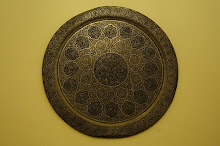 Review: The Great Arab Conquests: How the Spread of Islam Changed the World We Live In, by Hugh Kennedy, 376 pages, Da Capo Press.
Review: The Great Arab Conquests: How the Spread of Islam Changed the World We Live In, by Hugh Kennedy, 376 pages, Da Capo Press."The success of the Muslim conquest was the result of the unstable and impoverished nature of the whole post-Roman world into which they came, the hardiness and self-reliance of the Bedouin warriors, and the inspiration and open quality of the new religion of Islam."
This, the last paragraph of the The Great Arab Conquests, succinctly summarizes 376 pages of detailed text outlining how a context, vehicle and organizing idea came together to change the world. The last phrase regarding Islam may be surprising for non-Muslims today, saturated as they are by the debates over the radicalism of that faith in our era.
Nevertheless, this book makes a very good case that it was indeed universalism and tolerance that the Muslim warriors carried with them on the backs of camels and horses out of Arabia, north into Syria, east through Iran to Central Asia, and all the way west to the Atlantic. The Great Arab Conquests is the tale of that sudden and vast expansion anchored in the fascinating characters who carried it out: Khalid bin al-Walid and his march with 500 troops across the Syrian desert to conquer the Levant; Amr bin al-As, the "Odysseus of Islamic times" and the conqueror of Egypt; and Musa bin Abd Allah bin Khazim, the man who crossed the Oxus and whose fate is fitting of a Shakespearean tragedy.
These men and their armies had little problem routing the empires of Persia and Byzantium - a considerable feat owing to the hardiness of the Arab warrior who travelled light, often rejecting the luxury of a coat of mail that his enemy coveted (another secret of the Arabs' success were the relatively easy terms imposed on the conquered).
It is an irony of history however that the only trouble the rough and ready armies of Islam encountered were fellow nomads such as the Berbers - led by the mysterious Kahina, a purportedly Jewish queen - and the Turks. The latter would be a great foreshadowing of the future takeover of the Islamic empire by the horsemen of Central Asia.
Still, this book carries with it the spirit that the "early Muslims brought with them a great cultural self-confidence....they were the bearers of true religion and God's own language". It is that past confidence, that dream of success, that still haunts Arabs today, making them proud yet also often lost in a wondrous glory of yesteryear. It is also the reason Arabs find it so difficult to come to terms with some of today's harsh political realities.
Can inspiration and a more open quality to their culture and faith once again be terms of creation for Arabs, despite today's challenges?
All text in this post copyright John Zada and John Bell













No comments:
Post a Comment